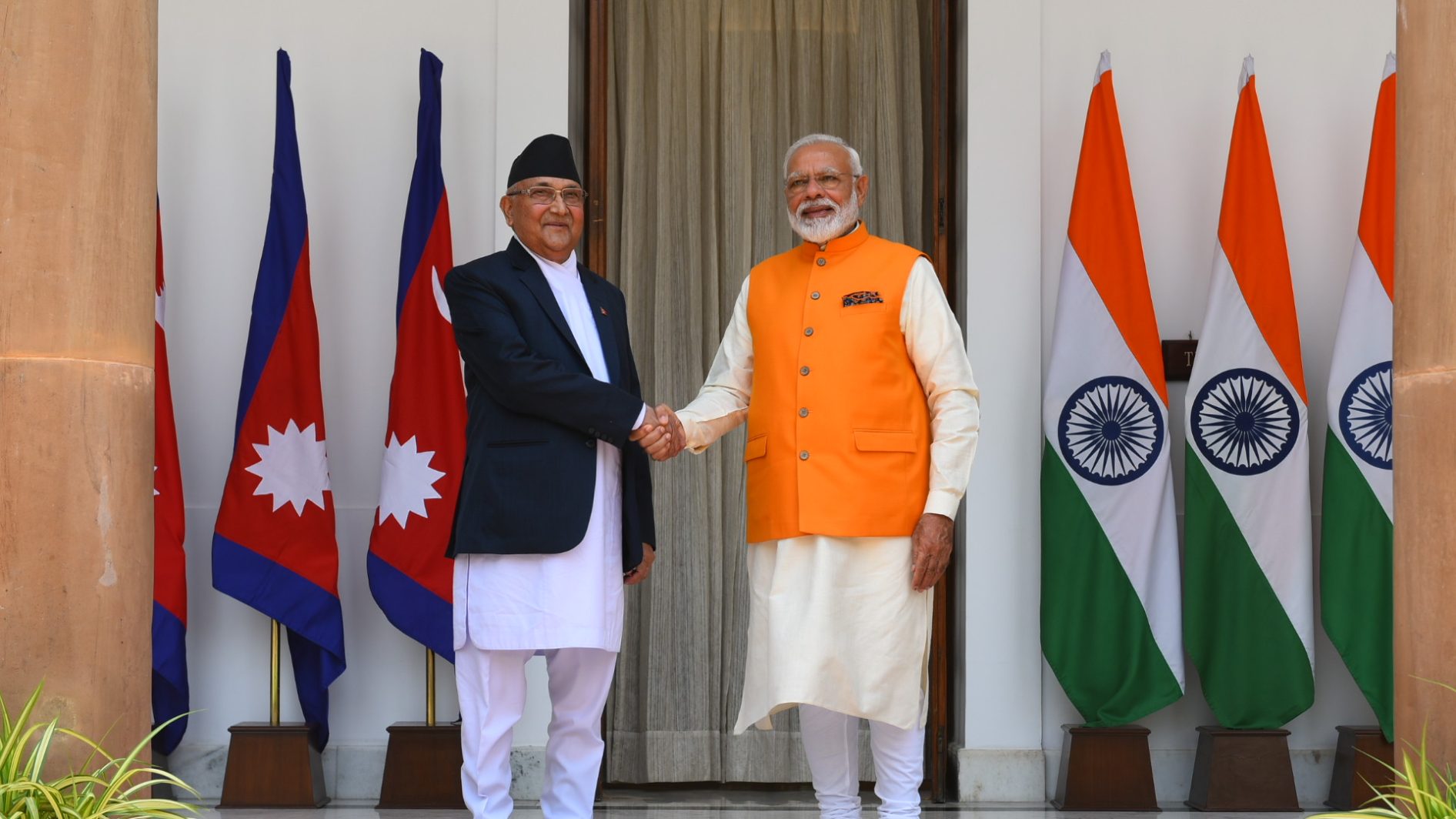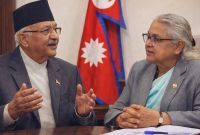Why India Did Not Invite KP Sharma Oli After His Appointment as Prime Minister?

Despite Nepal’s Prime Minister KP Sharma Oli’s recent meeting with Indian Prime Minister Narendra Modi during their visit to the United States, no official information has emerged about Oli's visit to India. This omission has sparked curiosity and speculation, especially in light of the fact that Nepal extended an invitation to Modi soon after Oli's appointment as Prime Minister. In contrast, when former Prime Minister Pushpa Kamal Dahal (Prachanda) assumed office, he quickly extended an invitation to Modi to visit Nepal, prompting questions about the current state of Nepal-India relations.
India and Nepal share a long-standing relationship shaped by geography, history, and culture. Traditionally, political developments in Nepal have been closely monitored by India due to their shared borders, mutual security concerns, and economic ties. However, recent geopolitical shifts, particularly Nepal’s increasing engagement with China, have prompted India to recalibrate its diplomatic approach. With Nepal drawing closer to China through initiatives like the Belt and Road Initiative (BRI) and increasing trade in electric vehicles and other sectors, India has grown increasingly cautious in its dealings with Nepal.
Oli’s return to power has particularly raised concerns in India, given the strained relations between the two countries during his previous tenure. His administration was marked by contentious border disputes, including the issuance of a new political map by Nepal that included territories disputed with India. These moves contributed to heightened tensions between the two neighbors. Despite these challenges, Oli has recognized the importance of maintaining strong economic ties with India, evidenced by his past visits to New Delhi and his efforts to strengthen infrastructure cooperation, including major hydropower projects.
However, India's reluctance to extend an immediate invitation to Oli following his reappointment signals a cautious diplomatic approach. The broader context is crucial: India is carefully navigating the evolving political landscape in Nepal, which now features a coalition government between Oli’s Communist Party of Nepal-Unified Marxist-Leninist (CPN-UML) and the Nepali Congress. While the Nepali Congress has historically been perceived as pro-India, its support for Chinese initiatives such as the BRI has introduced complexities into the bilateral relationship.
India’s concerns are not just political but also economic. Nepal's increasing reliance on Chinese imports, particularly in the context of electric vehicles, has raised alarms in New Delhi. Compounding the issue is the recent decline in Nepal's imports from India, which has been attributed to Indian restrictions on food exports. This shift has highlighted vulnerabilities in the trade relationship and has prompted India to reconsider its policies to safeguard its economic interests in Nepal.
On the geopolitical front, India views Nepal’s tilt toward China with apprehension. The deepening economic ties between Nepal and China could shift the balance of power in South Asia, reducing India’s traditional influence in the region. For India, Nepal’s strategic location in the Himalayas is crucial, not only for trade but also for security. The porous border and cultural ties between the two nations mean that political instability or a shift in alliances in Nepal could have far-reaching consequences for India’s security and regional influence.
Interestingly, a senior CPN-UML official recently stated that Nepal is committed to adopting a neutral foreign policy aimed at protecting its national interests. This statement reflects Nepal's desire to maintain balanced relations with both India and China, despite the growing economic and political ties with Beijing. For India, this represents a delicate diplomatic challenge. Engaging effectively with Oli’s government while ensuring that China’s influence does not expand unchecked will require a nuanced approach.
The political landscape in Nepal also presents challenges for India. The coalition between the CPN-UML and the Nepali Congress is seen as ideologically fragile, with potential rifts over power-sharing and foreign policy. India recognizes the potential for political instability in Kathmandu and is likely proceeding cautiously, assessing how these internal dynamics will play out before making significant diplomatic moves.
Furthermore, India's current domestic political scenario may also be influencing its foreign policy approach. The ruling Bharatiya Janata Party (BJP) does not have an outright majority in Parliament, making the government more dependent on coalition partners such as the Janata Dal (United) (JD-U) and the Telugu Desam Party (TDP), which have their own vested interests in Nepal. The JD-U, for example, has deep connections with Nepal’s Madhesh region, which shares strong cultural and economic ties with the Indian state of Bihar. This complex internal political dynamic may be contributing to the delay in extending an invitation to Oli.
In contrast, Nepal has moved swiftly to extend an invitation to Modi, signaling its intent to maintain strong ties with India. However, the delay in India’s reciprocal gesture could be seen as a reflection of the broader strategic calculations at play in New Delhi. India is likely weighing the implications of Oli’s return to power and assessing how best to protect its interests in Nepal, especially given the increasing influence of China.
The evolving relationship between Nepal and India will be closely watched in the coming months. While both countries have historically enjoyed close ties, the current geopolitical shifts and internal political dynamics in Nepal are complicating the bilateral relationship. India’s cautious approach to Oli’s reappointment may signal a broader strategy of recalibrating its engagement with Nepal, particularly in the context of China’s growing presence in the region.
Ultimately, how India navigates this delicate diplomatic balancing act with Nepal will have significant implications for regional stability, trade, and security in South Asia.




![From Kathmandu to the World: How Excel Students Are Winning Big [Admission Open]](https://nepalaaja.com/img/70194/medium/excel-college-info-eng-nep-2342.jpg)
